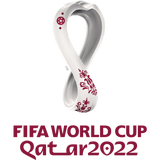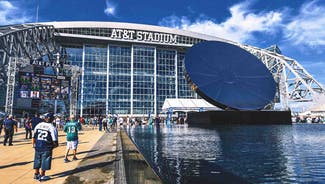
Putin-led Russian World Cup vote win investigated 8 years on
GENEVA (AP) Speaking in English with a beaming smile, Vladimir Putin put his seal on Russia's World Cup hosting vote victory that eight years later is still under criminal investigation.
''From bottom of my heart, thank you,'' Putin said , a comment directed at now-discredited FIFA executive committee voters to kick off his news conference with a four-minute statement. International media in Zurich had waited for hours after the result was announced for the architect of victory to be jetted in from Russia.
Putin was only the prime minister, not president, when Russia beat three rivals to secure world sport's most-watched event.
It was clearly his triumph on Dec. 2, 2010 in a campaign that got stronger through the year as Putin became more involved.
''He is the engine of this bid,'' then-sports minister and FIFA voter Vitaly Mutko told The Associated Press in a March 2010 interview. ''He does everything that he can to support our bid.''
''We want to show to the world the new Russia, open and hospitable in every sense,'' Mutko said through a translator at the Baur au Lac Hotel in Zurich eight years ago.
It was Putin sitting alone on a wide, high stage at a Zurich convention center as the lone Russian voice explaining what victory meant.
After his English speech, he answered questions in Russian for 50 minutes, short by his marathon standards, pointing to each inquisitor in the seats below. Applause followed his answers to testier questions posed by mostly western European media.
''We are honored to win in this tough and fair fight,'' Putin said. ''Together, let us make sure that football promotes fair play, tolerance, honor.''
Many FIFA watchers, and some from the beaten England bid, struggled to believe it was a result achieved by fair means.
That is despite a FIFA ethics committee investigation into all nine candidates from the 2018-2022 hosting contests which cleared the Russian bid, albeit with limited evidence-gathering powers and no access to the famously destroyed campaign computers.
What sustains doubts is that investigations by federal prosecutors in the United States, Switzerland and France, and FIFA's ethics court, suggest some of the 22 men who voted never picked a World Cup host on soccer merits alone.
One likely Russia voter was Chuck Blazer, the late American whose tax affairs, confession of taking South African money in the 2010 World Cup vote, and cooperation with the FBI fueled much of a devastating investigation of corruption linked to FIFA officials.
In his travel blog days before the vote, Blazer detailed an August 2010 visit to the Kremlin where he high-fived Putin during ''a half hour exchange of wit, charm and effective communications.''
In Russia's defense, it is now clear that an obviously corrupt group of FIFA voters - the South American trio of Julio Grondona, Nicolas Leoz and Ricardo Teixeira - was backing the rival Spain-Portugal 2018 bid. It was widely reported to have a rule-breaking, vote-sharing pact with Qatar's winning 2022 campaign.
''All the fish are sold,'' according to Spanish bid CEO Miguel Angel Lopez. His confidence suggested voters had decided and were immune to eve-of-poll pressure from superstar lobbying at the Baur au Lac.
Putin stayed in Russia, saying he would not pressure voters who had been ''smeared.''
Meanwhile, former U.S. President Bill Clinton held audiences in the luxury hotel for the U.S. 2022 bid, and Prince William worked for England.
Putin's absence, one day after a news conference with downbeat Russian officials in Zurich, added to the sense Spain-Portugal was the favorite, England was gaining, and the bicycle-friendly Netherlands-Belgium bid was a fun outsider.
The vote was not close. Russia led the first round, as tactical voting removed England, and swept the second with 13 votes. Spain-Portugal stayed stuck on seven, exactly the size of its alleged Qatari pact.
Sepp Blatter, the Russia-supporting FIFA president, would blame sore American and English losers for provoking criminal and media probes.
In truth, the FBI and Sunday Times newspaper began their work months before election day. It emerged that both used as a source Christopher Steele, a Russia expert formerly in Britain's intelligence service, and author of a dossier on current U.S. President Donald Trump.
Fighting for its reputation in 2012, FIFA beefed up an ethics panel whose investigation into the 2018-2022 World Cup contests would be led by Michael Garcia, a former U.S. Attorney in New York.
Garcia would not handle the Russian angle. In 2013, he was banned from entering the country for having once prosecuted a Russian arms dealer sentenced to 25 years in prison.
The Russian investigation was led by Swiss prosecutor Cornel Borbely, who found no evidence bid officials unduly influenced voters. However, campaign computers leased from the Konoplyov Football Academy, linked to Chelsea owner Roman Abramovich, were destroyed and email accounts never recovered from Google's American offices.
Also in 2014, a British parliamentary committee working with the Sunday Times published a report with unproven intelligence claims linking Putin to a bilateral gas deal with Qatar that included mutual support for World Cup votes.
Now, a Swiss federal investigation into potential money laundering linked to the 2018-2022 campaigns is in its fourth year. It has had no effect on Russia's preparations to host the World Cup and welcome visiting fans.
''You can get to know Russia,'' Putin said in English the day he won. ''Not bad, not bad at all.''
---
AP World Cup coverage: www.apnews.com/tag/WorldCup






































































































































